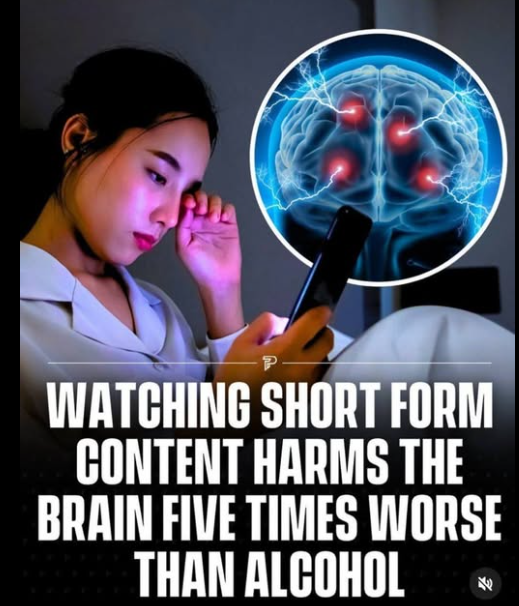? Neuroscientists warn: TikTok and Reels are more dangerous than they seem…
Modern social networks are attracting increasing attention not only from users but also from scientists. Platforms with short videos — TikTok, Instagram Reels, and similar ones — raise particular concerns. Neuroscientists sound the alarm: the impact of these services on the brain may even be stronger than that of alcohol.
Instant “Cheap” Dopamine
Each short video gives the brain a quick “cheap” dopamine hit — the neurotransmitter responsible for pleasure. The user doesn’t need to make any effort to get a reward: watching takes just a few seconds, and the brain instantly receives stimulation. The result is the formation of an addiction similar to drug dependency, where the urge to keep scrolling for new videos becomes constant.

How This Affects Cognitive Functions
A brain accustomed to such instant gratification gradually loses its ability to focus on more complex and long-term tasks. Studying, working, reading — anything requiring effort and sustained concentration — begins to feel boring or unpleasant. The brain starts seeking easy and fast stimuli, ignoring long-term goals.
Problems with Attention and Emotional Stability
Regular consumption of short videos can lead to reduced attention, impaired memory, and decreased emotional resilience. People become more irritable, quickly lose interest in usual activities, and constantly crave new portions of content.
How to Protect the Brain
Time limits: use timers or apps to control time spent on social networks.
- Focus on long tasks: dedicate time to reading, studying, and working without distractions.
Mindful viewing: choose content consciously, avoiding meaningless scrolling.
- Dopamine detox: occasionally take “digital weekends” with no social media at all.
⚠️ The world of short videos offers plenty of entertainment, but the price for instant pleasure may be high. It is important to remember: brain health and the ability to concentrate are priceless, and the quality of life directly depends on them.
All content provided on this website (https://wildinwest.com/) -including attachments, links, or referenced materials — is for informative and entertainment purposes only and should not be considered as financial advice. Third-party materials remain the property of their respective owners.


